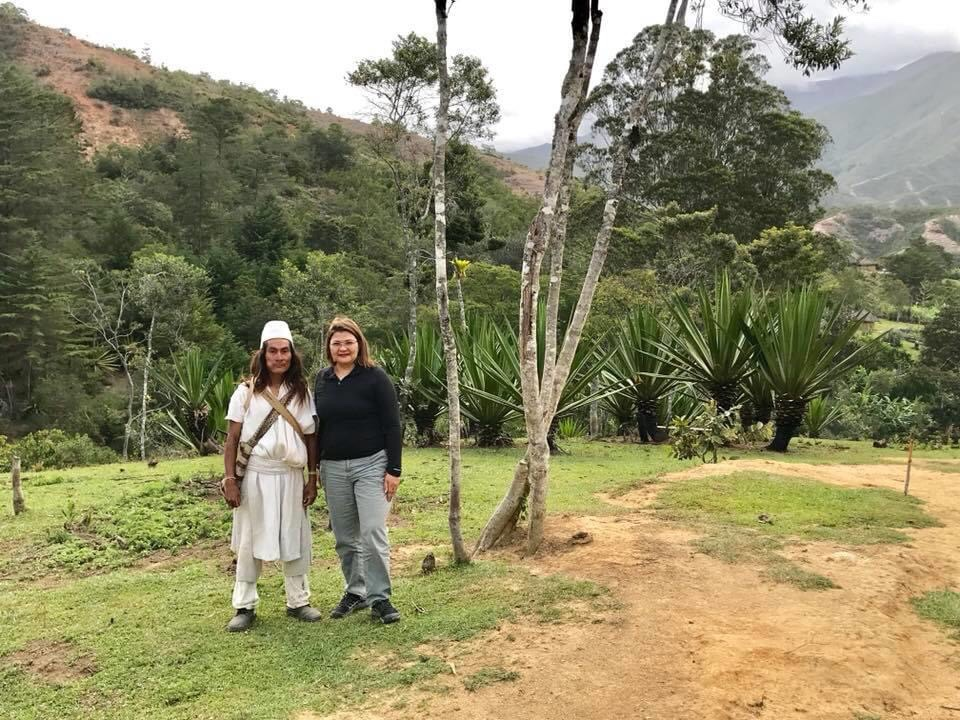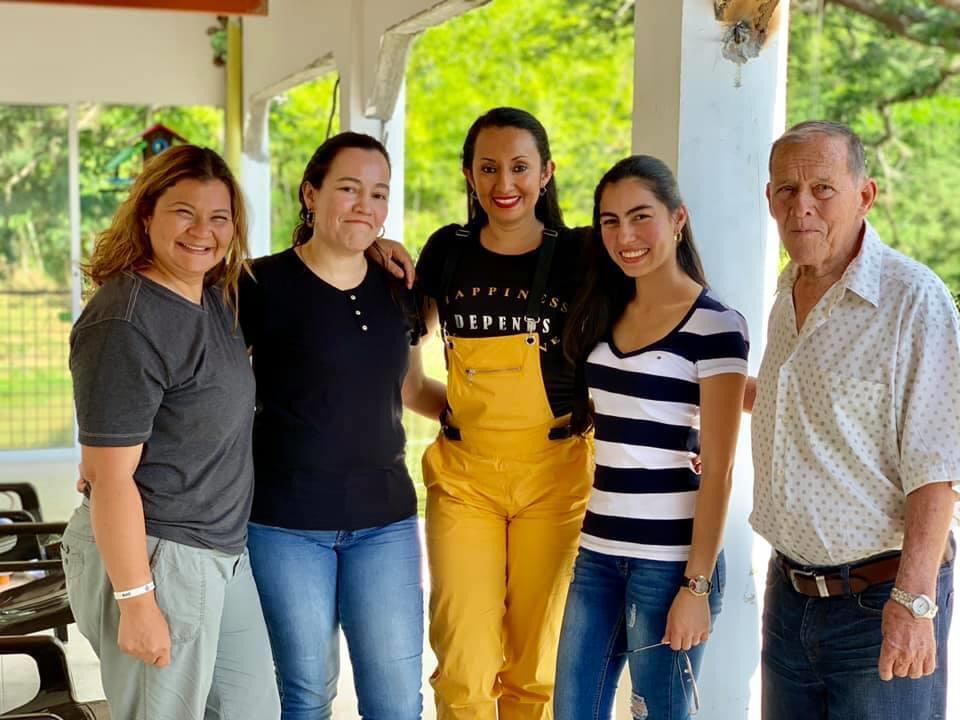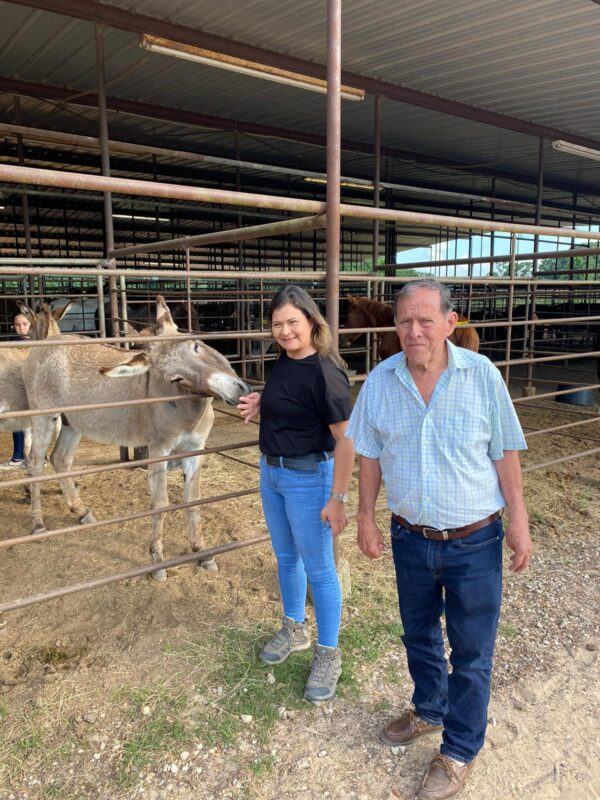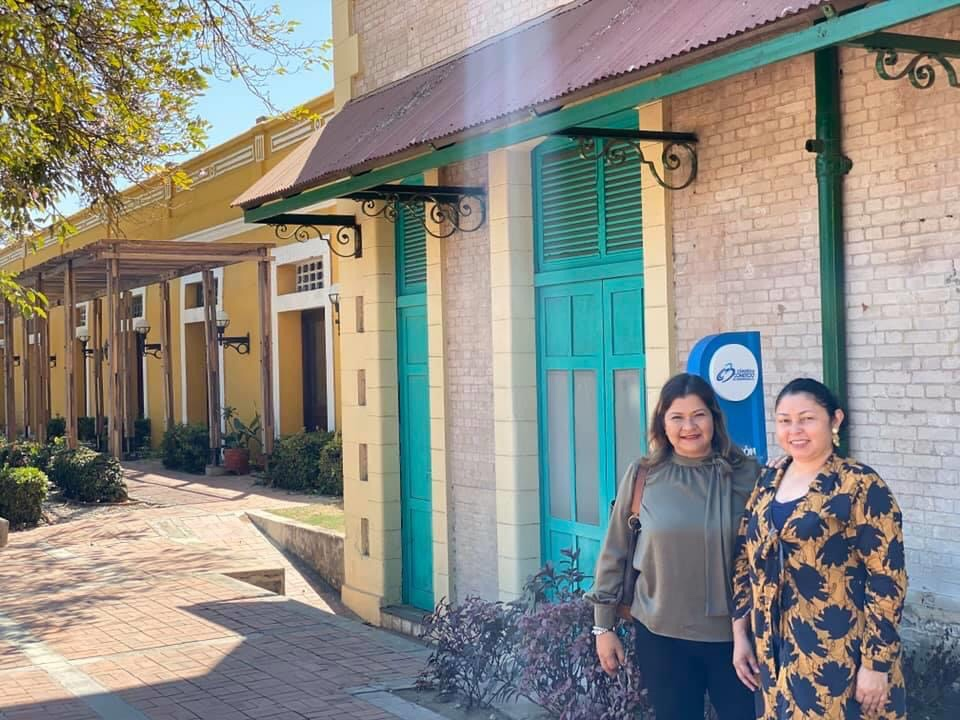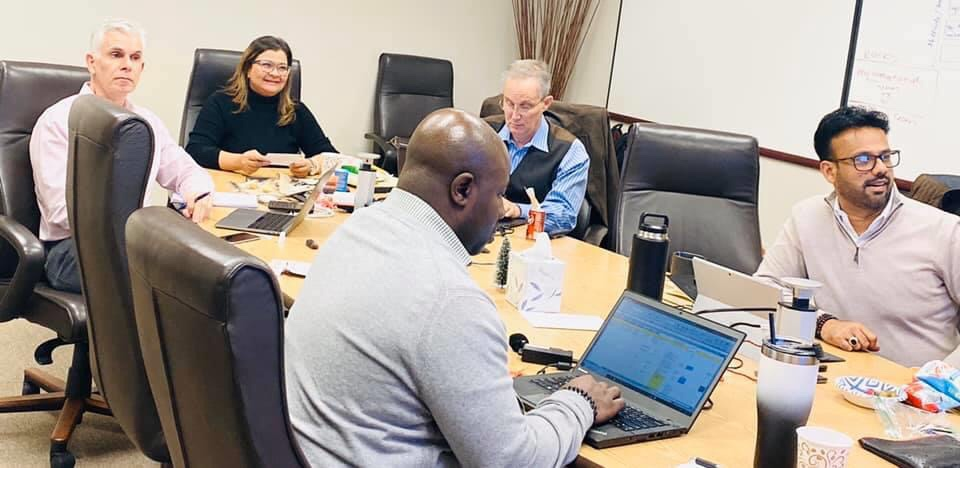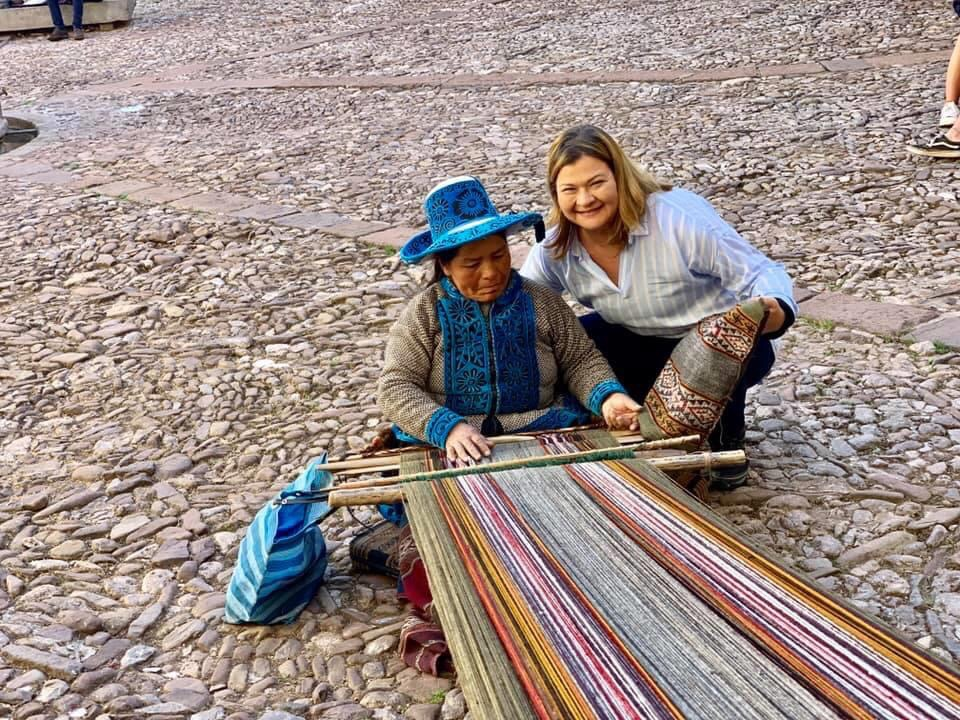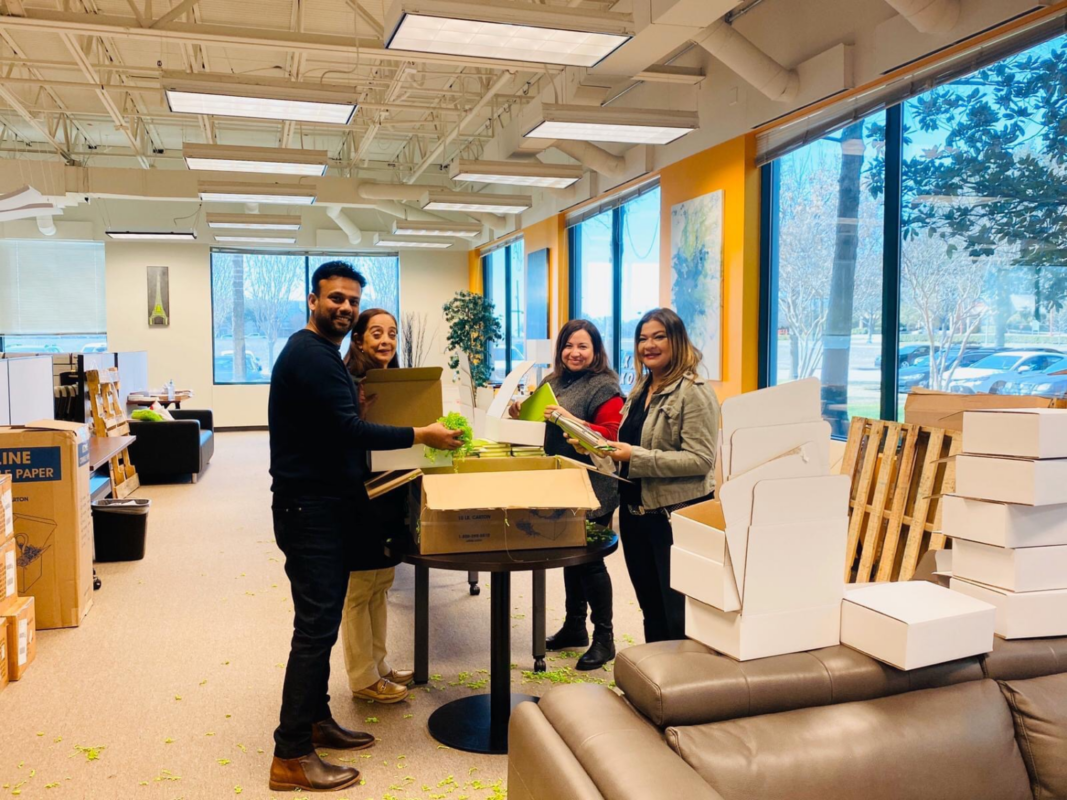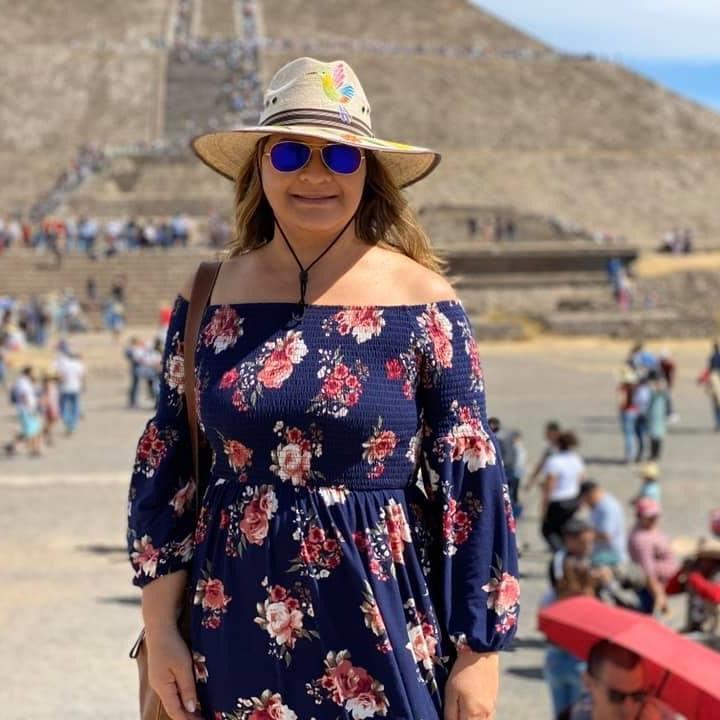Meet Claudia Mirza, CEO, and Founder of Akorbi, a group of companies specializing in building compassionate human connections through language, technology, and workforce solutions. A multi-awarded woman published author in key industry publications, a sought-after speaker, an inventor with patents pending, guest of the White House to advocate on behalf of women-owned small businesses.
Who is Claudia Mirza? Define yourself
Very difficult question. I define myself as a courageous woman who wants to inspire others to succeed. I am curious, humble, open, driven, and extremely interested in the economic development of women and peace. Children with special needs, especially the hard-of-hearing, hold a special place in my heart as my youngest child is a member of that community. I define myself as a person that is looking for a real purpose and wants to be remembered as someone that has made a significant impact for humankind.
Your father immigrated to the United States when you were four. He left your mother and you in absolute poverty in the most violent times Medellin, Colombia. Did the fact shape your fate? How were you as a kid?
I am a strong believer that adversity does not necessarily have a negative outcome. Some adversities drive you to create a positive change. Being alone in absolute poverty gave me life skills for troubleshooting, creative thinking, and an appreciation of family. It gave me an everlasting drive to achieve greatness. At a very young age, I was given the freedom to decide between right and wrong. I could smoke, I could have surrounded myself with dangerous people, I could have done drugs, but even with easy access to these bad choices, I decided to show the world that my character could not be broken despite the significant forces trying to pull me down. In those moments, I also learned the importance of having the right mentors in society for anyone that is struggling in poverty. My struggles early in life forced me to become a leader and helped me develop my entrepreneurial spirit.
“Being alone in absolute poverty gave me life skills for troubleshooting, creative thinking, and an appreciation of family”
You hold a business management degree from Cotecnova, Cartago, Colombia and you are a graduate of the Tuck-WBENC Executive Education Program at the Tuck School of Business, addition, you have a management certificate from the Southern Methodist University Cox Executive Education Program and a Bachelor of Science degree in business administration from the DeVry Institute of Technology, a Harvard Business School Alumni from the prestigious Owner/President Management (OPM) Program, Class 52, why did you choose those courses of study?
All this education has been circumstantial. Originally, I wanted to become a veterinarian. However, the closest I came to being a vet was by studying business administration focused on agricultural business. The second degree in business administration with a concentration in systems was because I was working for a telecommunications company and I was able to take advantage of their full tuition while working full-time.
The other diplomas have been thanks to the kindness of women support groups. They introduced me to these high-level universities, including Harvard Business School. As a result of this network, I recently completed the fascinating and life-changing, three-year Owner President Management (OPM) Program at Harvard Business School. OPM was a partial scholarship by the Women Presidents’ Organization. Tuck and SMU were scholarships from WBENC and IBM.
At the age of 21, you moved to the USA with your dad, you had to work to pay your studies in the USA, how did you jump from the point to found your own company Akorbi?
There is an interesting fact and predecessor to this story. While I was a college student in Colombia, I opened a business doing typesetting, research, creative design and even translations. That little job when I was just 18 years old, had three employees. At 20, I went to work for a multinational company as a safety and environment supervisor. At this job my typesetting, documentation and creative skills were very useful for training and engaging with the workforce.
I arrived in the United States in 1997. From the moment I landed, I enrolled myself at an English school. I took several semesters in English as a second language. I worked at the horse racetrack’s test barn as a test technician as well as at the horse auctions cleaning stalls and with facility maintenance. From there, I got a job in data entry. My English was still not very strong at this point, but I knew grammar and was able to type at a very fast speed thanks to the Catholic private school that I attended.
I joined Merit (after passing a lot of tests), a telecommunications company in Irving, Texas as an admin. I worked in the technical documentation department. After several promotions and full scholarship tuition for my second business administration degree, the company closed its doors during the dot.com cash. During this career transition, I found myself volunteering, translating and interpreting at a horse training seminar for agricultural workers. I had recently married Azam Mirza, my business partner, and needed to get back to work.
I went to the Greater Dallas Hispanic Chamber to ask for a job and Gabriela Carvallo, VP of Economic Development told me to consider opening my own business instead. I left the meeting with Gabriela feeling empowered and decided, with Azam, to open Akorbi.
“Surround yourself with good people and be kind to them. This attracts more people and ultimately gets better results”
Akorbi is a group of companies, based in Dallas-Fort Worth, specializing in providing enterprise solutions that empower companies to achieve success in the global economy. It helps organizations connect with employees, vendors, and customers in over 170 languages 24×7, through any modality, from any location, what does it unique in the market?
I could give you the perfect marketing answer here, but in reality, our biggest competitive advantage is that we treat people well. We are compassionate to our clients, vendors, and team members. We work very hard to run an honest business with integrity. If we are compassionate with our team members, that compassion continues to our clients and any stakeholders. At our core, we are working tirelessly every day on building compassionate human connections.
Under your leadership, the company has flourished to become an award-winning, fast-growing, international company with a 5-year growth rate of 1,267%. You are a published author in key industry publications, a sought-after speaker, an inventor with patents pending, you were recently invited to participate in a roundtable discussion with the Trump Administration at the White House to advocate on behalf of women-owned small businesses, countless awards and recognition that highlight your impressive success as Women’s Business Enterprise Star by Women’s Business Enterprise National Council (WBENC) 13th fastest-growing women-owned/led companies according to the Women Presidents’ the organization, Dallas Business Journal #48 on the Middle Market 50 List among others. What's the recipe for your success?
Surround yourself with good people and be kind to them. This attracts more people and ultimately gets better results. More specifically, I encourage business leaders to focus on these three core aspects:
- No business grows if you do not have a strong focus on sales. At times, we are so focused on operations that we forget to sell. The sales process should be a well-oiled machine that keeps running no matter how busy we are.
- Strategy: We have established a very organized business following the EOS methodology, which is explained in the book Traction by Gino Wickman. We have a ten-year plan with 1-year and 3-year goals.
- I can’t emphasize enough the importance of an impeccable accounting and finance team supported by a seasoned Financial resource. If I was to build another business again, a CFO would be the most important hire I make.
“I have spent my life taking care of others. Unfortunately, I am learning that if you do not take care of yourself first, nothing else is sustainable”
You are a very busy woman and still, you support different associations for example Ronald McDonald House Charities, what does it drive you?
Azam and I select charities every year. This year, due to the COVID-19 crisis, we helped repatriate families that were stranded abroad without money. We purchased airplane tickets and spent countless hours working on fundraising, logistics and respective repatriation. We repatriated children, people with disabilities and families that were very vulnerable. We also provide resources and time supporting our local translation community, children with hearing impairments and local women’s shelters.
Kamil Mirza, Azam and my youngest child had a very difficult birth and consequent recovery. During this tough time, we came to understand and appreciate the amazing support that the Ronald Macdonald House Charities provide. In my opinion, it is one of the most important charities with an important mission to host the parents and families of children with severe extremely complex medical problems. We give back because we believe that businesses should use their resources and influence to be an instrument of change in society.
What’s the biggest lesson you’ve learned over the years?
Be kind to people- it is sustainable. Making people angry is just not sustainable. Once you violate the trust of people, you can never get it back.
What does a normal workday look like for you?
I’m in meetings with the executive team, analyzing results, solving complex human resource questions and contract negotiations. However, I am hands-on. I like to be in the action, usually I travel to the different offices to visit with my teams and work with them to improve the quality of their working environments, workflows, and get to know them better. Right now, we are expanding the installed capacity of the Colombian branch and I’m leading the process from the US due to COVID-19 isolation. I travel a lot for global speaking opportunities or for our global operations. If I am running a global business, I can’t stay in one location, I have to spend a lot of time traveling.
“Learn to negotiate your next promotion and salary. I believe that every woman should become an awesome negotiator. I believe this is one of the most important business skills along with finance and leadership”
What do you love most about your job? & what is the most difficult part?
I’m a problem solver, I naturally enjoy finding solutions to problems. It keeps me going and keeps me on my toes. I also enjoy seeing how families thrive through the eyes of the many parents we have working in Akorbi. The most difficult part is dealing with people abusing labor laws. There are people that just make a living using labor laws to get money out of employers.
What is one strategy that has helped you to grow your business?
One strategy that has helped us is having diverse service offerings. If you sell only one thing, you only get revenue for one thing. If you sell several things, you develop multiple sources of revenue. A company with a diverse suite of services is as important as sales itself.
As an entrepreneur, what is the one thing you do over and over and recommend everyone else does?
Develop a strong financial foundation and hire good people.
Can you give more details about the mentorship and encouragement you provide about fellow women and working mothers at Akorbi?
All humans have basic needs that they need met. Employers need to focus on helping people with their most basic human needs. We empower our team by supporting and trusting them. As an example, an employer can have an amazing benefit package, but if the mother can’t work from home when her child is sick, we have failed that family.
Regarding mentoring, we need women to be empowered to speak up without fear of retaliation. My goal is to empower the women of Akorbi. I want to work with them to transition from fearful to being bold leaders. I want to help women and women of color to forget their gender or race. I want them to understand their value to the success of the business.
“Do not be afraid of dreams and relentlessly follow your passions. Success is the mix of doing the stuff you like with a lot of hard work”
Everybody has had dark moments in their lives, what have you done to get out of that phase?
I am very grateful to have an amazing support system. My executive team and team members are also great friends that I can trust with my life. My CFO, Jaime has been instrumental in helping me make decisions on both the professional and personal level. Also, Azam my ex-husband and business partner, helps me a lot when I am struggling. My team members are more than coworkers, they are my family. My 13-year-old son, Anwar, also provides me with a lot of moral support and affection. My two boys are very brave and now that they are getting older, I feel like they have started to take care of me. In dark moments, I also lean on people in my business networks and ground myself with my horses and nature.
What do you like to do in your spare time?
Usually I’m at my farm with my horses, or traveling with family and loved ones to pasofino horse shows. I love reading about human rights, peace, and democracy. I am very creative, and I am very interested in ecotourism.
Many authors say women can and must strive to have everything – a shining career, a blossoming family life and a perfectly balanced lifestyle all at once, others point out that– then women are placing unrealistic expectations on themselves if they believe they can have it all, you have two boys and you are divorced so according to your experience, what do you think about these statements?
I’m going to be honest; my life is not easy or perfect. If you use my life as an example, I can tell you that putting your life together is one of the biggest challenges to achieve. You need to be able to play multiple roles at the same time, you need to accomplish all the tasks from a demanding job, you need to be a mother, an understanding wife, and also a caring daughter. Taking all of this on at once can drive you insane. However, with time, you learn how to balance everything, you grow when you have difficult situations, you evolve.
Balance is simply doing a little bit of everything. Children and family should always take precedence over everything. However, I have also realized that as the woman holding everything together, you must maintain a healthy perspective on what really matters. Personally, I have spent my life taking care of others. Unfortunately, I am learning that if you do not take care of yourself first, nothing else is sustainable.
What are your plans for the future?
The business is running well which makes me very proud. We always need more sales and more expansion; it will always be an ongoing pursuit of growth and development. Regarding my personal development, I would like to learn more about politics and human rights. I would like to volunteer for peace negotiations, economic development for women or work for a presidential administration.
What tips can you give to young girls who want to become an entrepreneur like you?
Every human is sent to earth with a unique set of strengths and weaknesses. Learn to know your strengths and capitalize on those and find people that can off-set your weaknesses. For example, I am not strong in mathematics so I have intentionally created an executive team that is and can help cover areas of the business that I’m not strong at.
I encourage every woman to read books on negotiation and/or take as many negotiation classes as possible. Study human nature and learn how people can manipulate you and play with your emotions. Learn to negotiate your next promotion and salary. I believe that every woman should become an awesome negotiator. I believe this is one of the most important business skills along with finance and leadership.
I think in your position, many people may have the wrong idea of who you are, and what do you (professionally) with this idea in mind, what is being Claudia Mirza, and what's not?
I think that maybe for be a businesswoman, the people who do not know me, think I’m a woman who likes fancy things, a life full of luxury and so on. However, the real Claudia Mirza is not like that at all. I am a woman who enjoys a simple life with simple things. If I can have my family and friends, I am a happy person. I love nature and enjoy being out in the fresh air hearing birds sing.
Who is the woman you admire the most and why?
The woman that I admire the most today is Doctor Marsha Firestone from the Women Presidents’ Organization. The WPO is perhaps one of the only business organizations that does not ask about color, religion or social status. They accept you just by being a decent entrepreneur. I never realized the power of this until I started to experience loneliness and segregation in countries that do not have a WPO presence.
Something else do you want to add or share with us?
I would like to add a little advice for the women who want to be entrepreneurs. Do not be afraid of dreams and relentlessly follow your passions. Success is the mix of doing the stuff you like with a lot of hard work. Always believe in yourself. Your life is short, do not waste it.
Name: Claudia Mirza
Sector: Technology
Company: Akorbi
Designation: CEO and Founder
Country: Colombia / USA
Social media:
https://www.linkedin.com/company/akorbi/

